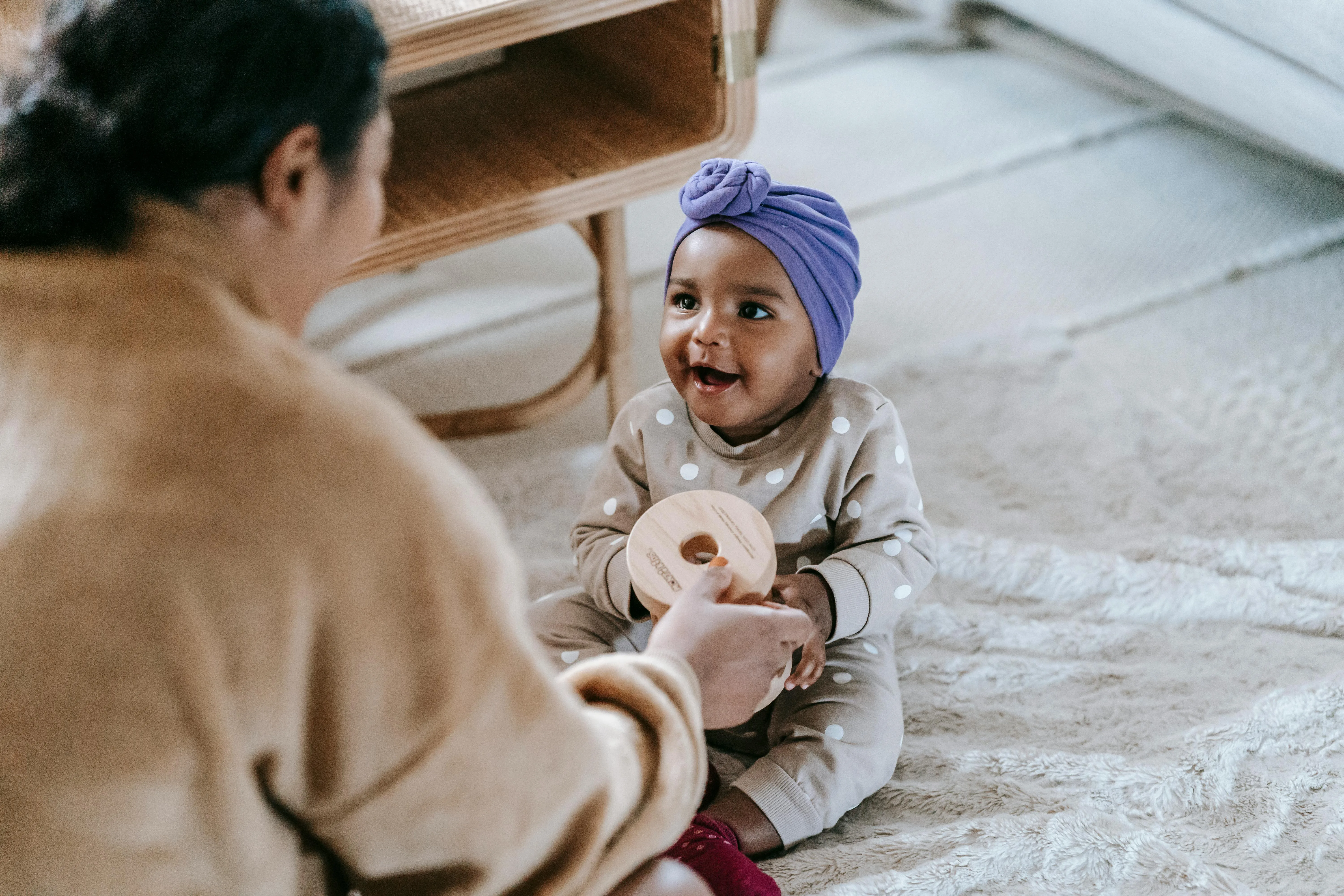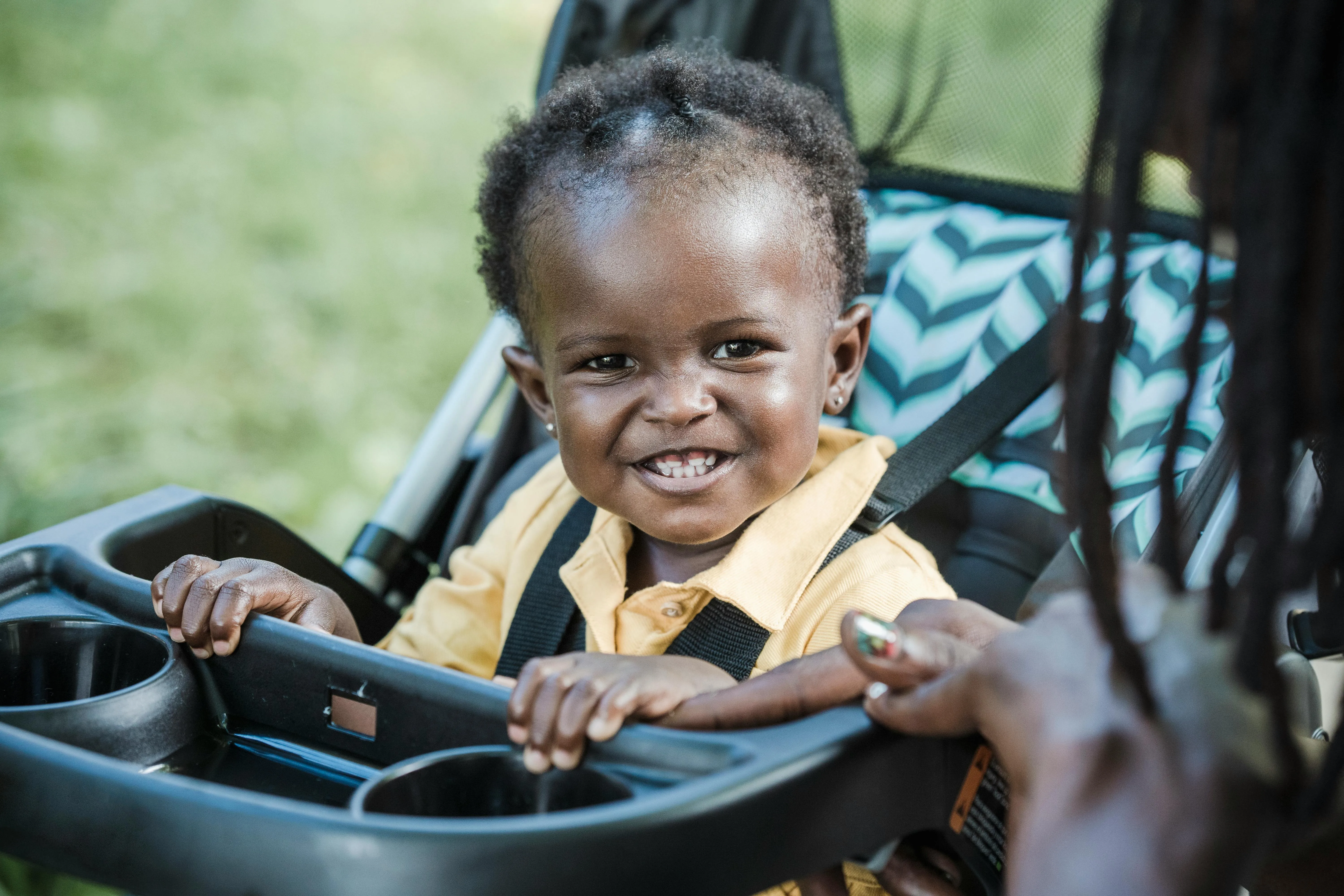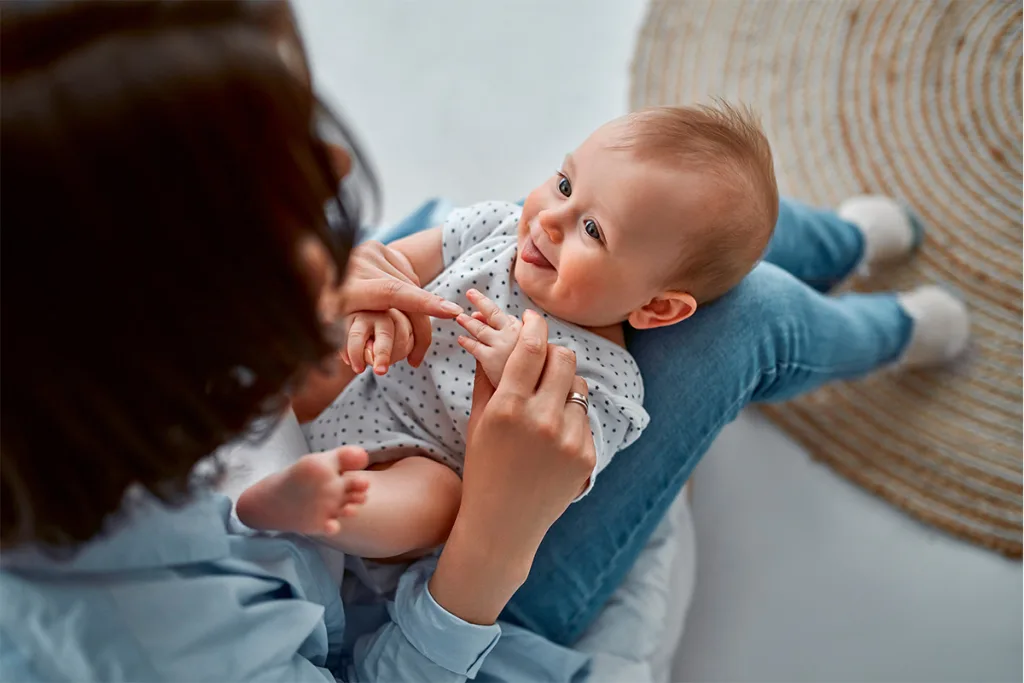Infants experience rapid growth and development in their first year, and playtime is an essential part of their learning journey. When families and Au Pairs work together to incorporate age-appropriate infant activities across key areas, children become more engaged and often reach physical and cognitive milestones quicker.
Looking for fun activities for infants? We’ve got you covered with this list of 20 top picks.
Why Activities for Infants Matter
Babies absorb vast amounts of information and do a heap of unconscious learning during their first 18 months. As such, play isn’t just about having fun. It’s a powerful tool for skill development that lays the foundation for future learning and progression. Here is a quick list of key benefits:
- Cognitive growth: Playtime engages neural networks, fostering early problem-solving abilities.
- Physical development: Tactile and visual stimulation strengthen motor skills.
- Speaking and listening: Interactive play promotes language development and communication.
- Emotional security: Sensory-rich experiences help babies feel secure and build emotional bonds with parents and caregivers.
Choosing the right activities at each stage of development helps stimulate your little one’s senses, enhancing their ability to learn about the world around them. Let’s explore some specific activities for babies and infants that you and your Au Pair might like to try.
Sensory Activities for Babies
Engaging multiple senses, like touch, sight, and sound, helps babies develop key skills. These sensory-focused infant activities support cognitive and physical development by stimulating little brains and bodies in fun, interactive ways.
Tummy Time
Tummy time helps strengthen your baby’s neck, back, and arm muscles, all of which are crucial for crawling, sitting, and walking. Regular tummy time supports physical development as they progress toward these key milestones.
Tip: Start with short sessions and increase the duration as your baby gets stronger. Use a colorful toy or mirror to keep them engaged.

High-Contrast Toys or Flashcards
These simple tools help stimulate eye movement and improve focus, supporting visual tracking and cognitive growth as your baby develops the ability to process visual stimuli.
Tip: Hold the cards or toys close to your baby’s face and move them slowly to encourage improved focus and bigger eye movements.
Water Play
Supervised water play, whether in a shallow bowl or during bath time, offers tactile stimulation, helping your baby explore textures while promoting hand-eye coordination.
Tip: Keep the water shallow and add rubber toys, soft washcloths, etc, to maximize engagement.
Exploring Textures
Introducing infants to soft, bumpy, and crinkly surfaces early helps them develop tactile awareness, sensory processing, and motor coordination.
Tip: Use a variety of textures and guide your baby’s hands to explore each one. Examples include fluffy blankets, fuzzy balls, smooth rubber toys, textured surfaces, and compressible sponges.
Motor Skill Development Activities
Incorporating motor activities for infants helps them develop the physical dexterity needed to move, grab, and explore. The following activities promote muscle strength, coordination, and body awareness, setting the stage for more complex development in the future.
Sensory Bin
A sensory bin filled with safe objects helps your baby practice grasping, reaching, and exploring. What’s more, it engages both tactile and visual senses, supporting the development of fine motor skills.
Tip: In addition to varied textured surfaces, experiment with different shapes to familiarize them with new tools like plastic spoons and cups that they’ll start using as they grow.
Baby-Safe Mirrors for Visual Engagement
Mirrors help babies build visual awareness and track their own movements. In addition to the cognitive development benefits, looking at their reflection fosters a healthy sense of self.
Tip: Place the mirror in front of your baby during tummy time or while they’re sitting. Hold their attention by making faces or moving the mirror slowly to follow.
Gentle Stretching or Baby Yoga
Yep, you read that right. Yoga isn’t just for zen adults! Gentle stretching movements help babies improve their flexibility and coordination while simultaneously promoting motor skill development.
Tip: Play soft, calming music to create a relaxed atmosphere. Then, gently stretch your baby’s arms and legs or guide them through simple poses like bringing their knees to their chest.
Supported Sitting with Toys to Grab
Learning to sit is an important skill, but it can also be used as time to engage in stimulating activities. Keep a variety of safe and engaging toys within reach for your baby to interact with at their leisure to help build motor skills as well as core strength. Consider toys that engage multiple senses to keep things interesting.
Tip: Is your baby a wiggle-worm? Toys can help keep them busy during supported sitting, so they don’t grow bored sitting in one place for long periods.

Language & Communication Boosters
Language-based infant activities stimulate your baby’s auditory pathways, enhancing listening skills, encouraging early speech, and strengthening communication abilities. Here are a few great examples.
Singing Lullabies and Nursery Rhymes
Singing familiar songs helps babies develop an early understanding of rhythm, language, tone, and pitch. It also creates a soothing, calm, nurturing environment that encourages further learning.
Tip: Use hand gestures to accompany lyrics to keep your baby attentive and engaged.
Reading Board Books Aloud
Reading to your baby provides opportunities to introduce them to images as well as words. Large books with bold pictures and simple text are ideal for capturing an infant’s attention.
Tip: Pointing at pictures and making sounds that bring the story to life helps babies make connections between visuals and words.
Responding to Baby’s Coos and Sounds
Back-and-forth interactions develop language and social skills. Responding when babies coo or babble sets a tone for early communication and introduces the concept of two-way conversation.
Tip: Mimic your baby’s sounds and make eye contact to create an interactive experience that encourages further vocalization.
Peek-a-Boo and Face Games
These are simple, fun ways to engage and entertain your baby. Playing peek-a-boo teaches them object permanence, while face games help with social bonding and facial recognition.
Tip: Vary your facial expressions and observe your baby’s reactions. Try making exaggerated expressions like wide smiles and surprised looks to keep them engaged.
Creative Play & Bonding Ideas
Creative play and bonding games are some of the best infant activities for encouraging stronger emotional connections while also providing an outlet for imaginative expression. Here are a few simple yet effective options that our Host Families and their Au Pairs love.
Baby Massage with Calming Music
A massage (using baby-safe lotion or oil) can be a soothing way to promote relaxation, enhance sensory development, and help babies become more aware of their bodies.
Tip: Keep the music calm, but feel free to experiment with different styles at different times of day, as this can help develop a stronger sense of routine.
Puppet Play or Finger Puppets
Using stuffed toys or finger puppets is a fun way to introduce new sounds and expressions that fuel your baby’s imagination and encourage maximum cognitive and social development.
Tip: Move the puppets slowly and use different voices for different characters to captivate your little one’s attention and keep them attentive.
Dance with Baby
Swaying back and forth introduces babies to the concepts of coordination and balance while providing physical interaction. Babywearing or holding them close while moving fosters a stronger emotional connection.
Tip: Make eye contact and smile as you dance, and try to time your moves to match the pace of the music to help build early awareness of rhythm and coordination.
Gentle Rolling Games with Soft Balls
Playing with balls encourages improved hand-eye coordination and helps infants develop the essential grasping skills they’ll need as they move on to more independent play (grabbing toys, stacking blocks, etc.).
Tip: Play around with balls of different sizes and roll them at varying speeds to nurture a deeper understanding of movement, reactions, and the cause-and-effect relationship between them.
Outdoor & Nature-Based Activities
Outdoor infant activities expose babies to fresh air, natural light, and new textures and environments, enhancing sensory development and overall well-being. Here are a few family favorites to build into your routine.
Stroller Walks with Narration
Stroller walks allow infants to observe their environment and develop higher-level visual and auditory processing skills. Narrating what you see along the way enhances language and listening skills.
Tip: Describe what’s around you as you walk. Phrases like “Look at the trees!” or “The birds are flying!” help infants learn by connecting sounds with visuals.
Blanket Time on the Grass
Lying babies on a soft blanket in the fresh outdoor air provides opportunities to explore their environment from a new perspective and feel new textures like grass, earth, and soft dirt.
Tip: Try combining outdoor relaxation with other activities like tummy time and stretching to maximize the benefits.
Watching Leaves, Birds, and Clouds
Observing natural elements enhances visual tracking and fosters curiosity, ultimately stimulating cognitive and emotional development.
Tip: Lie on your back next to your baby and point to things above you or in the sky. Describe them in simple terms to build an early awareness of nature and movement.

Touching Safe Natural Textures
Letting babies engage with new stimuli safely encourages exploration and helps them develop tactile awareness while they experience nature up close.
Tip: Start with soft surfaces like leaves and flower petals, then build in complex textures like tree bark, smooth stones, and irregular pebbles.
Age-by-Age Fun Activities for Infants
Your child’s needs are constantly evolving as they move between developmental milestones. Here are a few suggestions for age-appropriate activities families and their Au Pairs can utilize to boost growth at each stage.
- 0–3 months: Focus on sensory and bonding activities like tummy time. Introduce gentle hand-holding to foster emotional security and play with high-contrast toys that stimulate vision and encourage focus.
- 4–6 months: Focus on motor skill development and interaction. Incorporate any activities from above that encourage reaching, grasping, sitting, touching, watching, speaking, and listening.
- 7–9 months: Focus on movement. Prioritize active play to build strength and promote crawling, independent sitting, and enhanced coordination. Think gentle stretching, baby yoga, and ball rolling games.
- 10–12 months: Focus on problem-solving and mimicry play. Activities that encourage curiosity and early-stage solution thinking include clapping and waving games, simple puzzles, block stacking, etc.
8 Safety Tips for Infant Activities
While exploring the world through play is essential, safety is key. Here’s a list of best practices we encourage our Host Families and Au Pairs to follow:
- Always supervise infants as they play.
- Avoid small objects that could pose a choking hazard.
- Keep play areas free of sharp edges or hard surfaces.
- Use age-appropriate toys and activities that match each developmental stage.
- Watch for signs of overstimulation and take breaks when needed.
- Ensure all toys and training aids are baby-safe and free of harmful chemicals.
- Keep play surfaces soft, using breathable fabrics where possible to prevent discomfort.
- Always check toys for loose parts or wear and tear before use.
By following these guidelines, you can ensure playtime is both fun and safe!
Find an Au Pair Who Knows How to Make Playtime Fun at Go Au Pair
Daily play is key for your baby’s development, but it can sometimes be challenging to find the right activities or fully enjoy these precious moments without feeling rushed. That’s where an experienced Au Pair can make a world of difference.
Go Au Pair specializes in helping parents find experienced Au Pairs who bring fresh ideas and build creative infant activities into your baby’s daily schedule.
Take the next step today! Discover how easy it is to become a Host Family and begin your search for the perfect Au Pair.



